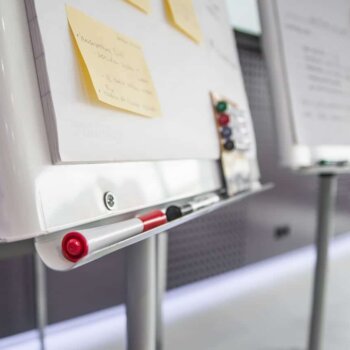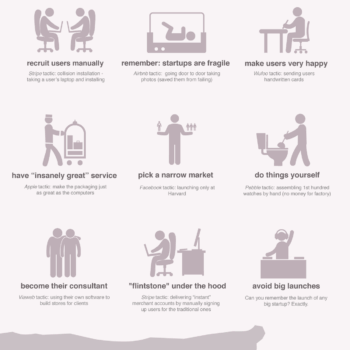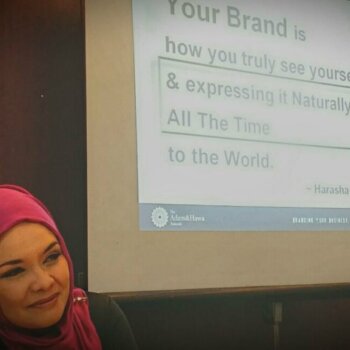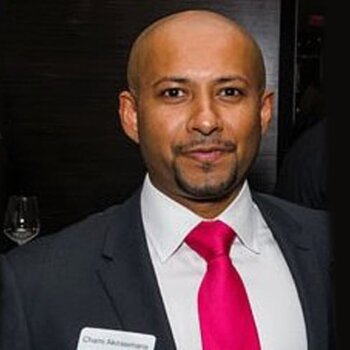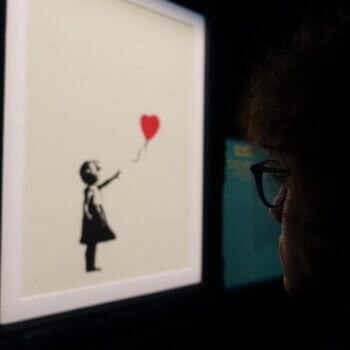I was speaking to a friend this morning about the alarming increase in peanut allergies in certain populations, chiefly the overdeveloped West. For example, they have increased fivefold in the UK in just the past 20 years. The latest science behind the cause stipulates that we are just too clean; and that our avoidance of potential threats — a legume, in this case — has cheated our immune systems of the ability to build a tolerance for them. Said another way, we are not suffering from as many infections as we used to, because we are not allowing ourselves to be exposed to them, to build our internal strength. This suggests that our efforts to combat a potential threat come with a dark side… our increased risk of suffering, at the hand of underexposure. Also in the UK, a King’s College LEAP study showed that children who regularly ate peanuts from the time of their birth registered an eighty percent reduction in peanut allergies, over a control group (3%, vs. 17% at large).
Our runaway peanut intolerance tracks with the chief reason the majority of indigenous Americans (North, South and Central) perished en masse when the Europeans colonized their lands: unlike the Europeans, who lived openly among their disease-ridden animals, the indigenous populations were far cleaner, bathing regularly, and relegating animals to their own quarters. As a result, they succumbed wildly to viruses (smallpox, measles and flu) that the comparatively filthy Europeans brought with them, and against which the invaded people had no antibodies to protect them. Ultimately, according to super-author Jared Diamond in Guns, Germs and Steel, 90% of New World deaths were attributable to disease, unopposed.
Ideas are no different.
Not every idea is a good one, obviously. In fact, most of them aren’t. But like germs, bad — or challenging — ideas have a place, too, in our lives. They serve to provide context and experience to our continued explorations, and strengthening. Inventors, scientists and innovators all know that it’s rare we uncover a great idea, in the right form, without first failing on the way to success — sometimes dozens or more times. Failures are informative, if we can see them for what they are: lessons, to teach and empower us beyond what we knew before we hit a dead end, or failed.
Thomas Edison famously said of his protracted effort to invent an economically viable electric light, “I have not failed. I’ve simply found 10,000 ways that won’t work.”
The Case for Bad Ideas
Physiological allergies and scientific exploration are great background for the case to be made for bad ideas. In the West, especially, we are obsessed with two phenomena: winning, and being right, which is related, but distinct. Because of this, we are essentially blind to truth, which is far more nuanced than any single prevailing paradigm. The idea that we could be anything other than successful, or that our ideas may not be as holistically conceived — and faultless — as we’d have ourselves (and others) believe, is beyond most people’s capacity to seriously consider.
Losing is too much of a buzzkill. Plus, it won’t trend on Twitter.
Even back in the ‘dark ages’ of the Internet, in 1995, my brother quipped in front of the assembled student and teaching body at Harvard Medical School, as he addressed them at graduation, “From day one at HMS we are told of the countless Nobel laureates who once sat in our very seats. As overachievers, we tend to internalize these expectations. What if one of us here does not receive a Nobel Prize?”
It’s not only Harvard.
Our social media feeds, our academic institutions, our television and film media and our national narratives are allconsumed with this blind pathology of winning.
I say ‘blind’, because to focus exclusively on a potential upside without planning for — or embracing — an all-too-likely downside, is to suffer the very same delusion that has every gambler believing that they alone won’t succumb to the ‘house odds’, or that the stock or housing market will continue to rise indefinitely. Moreover, the idea that any of us is in possession of infallible truths, rather than an imperfect and highly personal, non-transferrable understanding of anything, is to truly live a self-defeating delusion.
Life, in my view, is about building context, on the back of experience. The broader it is, and the deeper it digs, the stronger we emerge, as individuals, and as communities of contributors.
It’s as author Janet Fitch wrote, “The phoenix must burn, to emerge.”
Indeed.
Imre Lakatos, the late Hungarian science and math philosopher, once said, “Blind commitment to a theory is not an intellectual virtue; it is an intellectual crime.” Israeli economist and psychologist, Daniel Kahneman — the author of Thinking Fast and Slow — said, “We’re blind to our blindness. We have very little idea of how little we know. We’re not designed to know how little we know.”
So if these luminaries are right — and I believe they are — how come we are so committed to that which we know, without regard to the fact that we may not be as right as we believe ourselves to be?
Said another way, where is the humility in our beliefs? Where is the room for new ideas — good and bad, alike — not just in tolerance, but in zeal?! Why aren’t we begging to be fed as much as we can, from all sources? Wouldn’t this stand a better chance in expanding our understanding of things? Wouldn’t it also carry the ‘fringe benefit’ of being able to speak other languages, to people whose beliefs skew toward the things we more regularly reject out of hand for not conforming to our own extant biases?
Where is our appetite for bad ideas? How do we even know they are bad, if we aren’t willing to hear them? As I said earlier, lessons are everywhere. Pearls hide within bland gray shells we’d never have looked at twice, if it weren’t for enough hunger. Oyster shells don’t look tasty. But inside, oh, my…
The Art of Debate
We used to value — and teach — debating skills. This wasn’t to learn how to manipulate or outmaneuver one another, in a show of legerdemain. That’s the domain of lawyers. Debate, in its true form, is about two things: resistance training, and education. More often than not, true debaters come away with a broader understanding of any given issue, an appreciation for others’ points of view, and a stronger foundation on which to build whatever they wish to, as a result of their newfound perspective.
In fact, a common tactic in debates is to force those with a prevailing belief to debate the counter-position, rather than the one they already hold to be true. You’d be shocked at how much empathy and understanding can come out of truly studying someone else’s position and perspective, with the aim of defending it.
As importantly, debates were never taken personally. They were understood to be tools of psychological and societal expansion — not attacks. Debate evolved thousands of years ago. Athenian democracy, the world’s oldest, engaged in political and philosophical debates as a process of mutual discovery for a new societal structure. If they hadn’t, we may not live in one — certainly one as well tested. Ancient Indian Shastrartha — roughly, ‘intellectual debate’ — was similarly inspired, in order to reveal the inner meaning of scripture, and human existence. We could easily argue that Indian spirituality, in its many forms—yoga, meditation, the Vedas, and Buddhism, in the place where it was born — is the richest and most evolved such ecosystem, anywhere.
The art of debate has been largely lost, for a number of reasons. In a 2019 The Spectator article called The Death of Civilized Debate, British author Douglas Murray posits:
“Today nearly all real public discussion has become impossible. Which is why nearly all public thinking has become impossible. Which is why the thinking has gone bad on nearly every major issue now facing us.
It isn’t just politics that is finding it hard to operate. It is also the media and every other piece of sense-making apparatus we used to possess. The negatives accrued to any individual or institution for thinking or saying anything remotely controversial now means that they don’t bother any more. We’ve lost the art of discussion and with it the ability to find honest solutions.
There are a number of causes. Take the collapse of the ideas of private and public language brought about by technology. Throughout all of human history up until today the idea that you might say one thing in private and another in public was stored wisdom. It could lead to double-speak, for sure. Hypocrisy, certainly. But it was also recognised to have a utility: people — including politicians — needed to try out thoughts and ideas. No longer.
Today every politician and private individual has to live their lives (and voice any ideas) with the constant threat that what they are saying might be for the few people around them or (thanks to Twitter and other social media) for every other human being on the planet. Anyone doubting the extreme implications of this should consider the case of the 18-year-old schoolgirl from Utah who last year posted a photograph of herself in her prom dress online. By the end of the evening the image had circulated the world and (because the red dress was Chinese-inspired) she was being globally berated for ‘casual racism’. All she wanted was a few social media ‘likes’. What she got was a hurricane.”
The true losers in the trade, from curiosity-fueled inquiry and tolerance to xenophobic judgment and censorship, are the people who now not only suffer from lack of expansive ideas that could help us reach farther individually and collectively, but who also resultingly suffer from immature nervous systems, because everything is now seen as an existential threat to how we already feel.
Any of us who has been in a marital spat knows that when we are being yelled at, we stop hearing the other person, wholesale.
Except in this case, we’re not talking about the dishes; we’re talking about our species.
We have largely lost our curiosity in things beyond those that will gain us immediate advantages over perceived obstacles or opponents, or toward a fixed goal. Open inquiry — unscripted, untimed, and without prejudice as to outcomes — has all but left society at large, and is now relegated mostly to the fringes, to champions of the scientific method, philosophy and the fine arts, all of which require us to uncover our biases and neutralize them, in the name of discovery — if we are to be any good at our chosen vocation. Conversely, the non-scientist, non-philosopher, non-artists among us march ever-forward in our ever-shrinking, ever-fragmenting camps, seeking solace in similitude. We have become, as it were, “all mouth and no ears”. At least that’s what we’d have to conclude, in an honest appraisal of our digital lives.
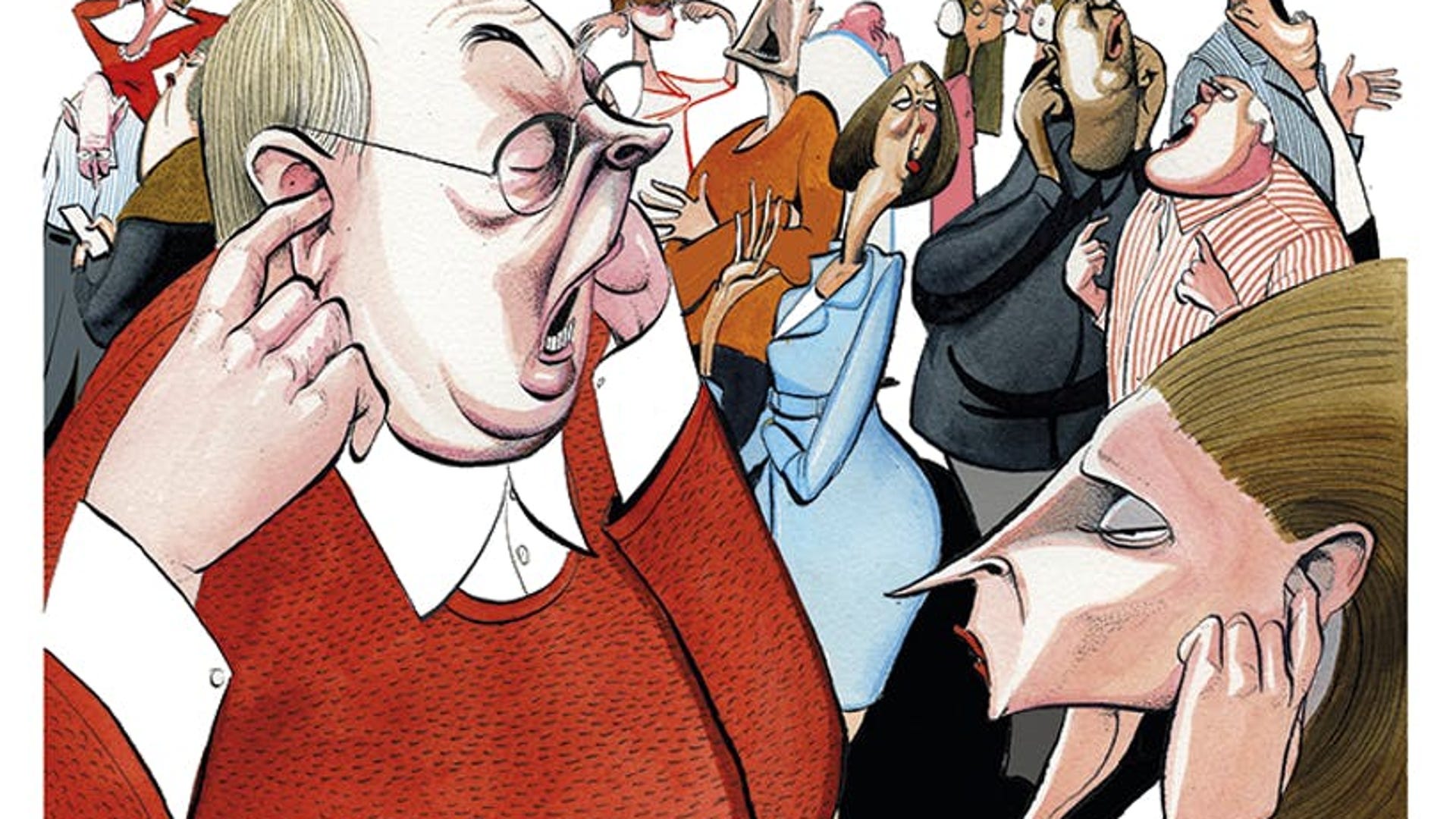
As I wrote for The Innovation in A Tale of Two Internets, “We spend more time online than not. That’s right: assuming we sleep for eight hours a night, we are awake on average sixteen each day, of which — according to Nielsen — we now spend an average of eleven hours and fifty-four minutes staring at a screen. That’s roughly 75% of our waking hours, plugged in.”
I’m not sure about you, but I’ve never observed a deep, nuanced, open-ended, multi-perspectival, vigorous yet kind-hearted debate unfold online, nor on television, on any topic.
Debate and civilized discussion, in my view, remain purely analog, real-time pursuits—eye to eye.
And even then, they are in short supply.
Checks and Balances
Try these on for size. Impediments to allowing distraught would-be mothers from carrying out abortions reactively, without a measured appraisal of options and community support. Background checks for would-be killers, before loading them up with advanced weaponry. A Carbon Tax on polluting the air we all breathe, and choke on; and the water we drink, because we all lose in the end. Third-party investigations into the efficacy of publicly funded entities, and iterative adjustments based on findings. Forced tolerance — and even protection — of hate speech. Abolition of prison sentences for minor crimes, altogether. Retirement ofeducational standards, or any idea of a nation-wide curriculum. A mandate for would-be employers to pay a (truly) living wage to anyone willing to work. Abolition of unions. Abolition of the tax code. Abolition of the Electoral College. Abolition of the War on Drugs. Abolition of regulations of any kind, while simultaneously abolishing all tax shelters, lobbying and subsidies, without exception.
These are all bad ideas — at least to a large share of humans. They are also all worth listening to, because they may yet prove to be good ideas, or unlock some, if given enough attention and stress-testing, through debate.
Why stop there? Eliminate education to incubate a system of apprenticeships that tie children to adults who do things. Eliminate policing to return to neighborhood patrols filled with people who know one another. Dissolve government altogether, and revert to local communities that rely on self-determination and adjudication, when necessary, between people who know one another, personally, to chart their own paths. Maybe that way we can ‘stress-test’ countless new societal organizations, to see which ones thrive, and learn something from those that don’t. Obliterate sweeping ‘one size fits all’ laws that no longer fit anyone. Stop mining fuels of any kind, tomorrow. Let’s see how quickly limitless, ‘free’ power is harnessed and distributed. (Hint: really quickly.) And while we’re at it, let’s eliminate money (!!) and return to a free-market barter system, where everybody contributes something and can negotiate directly the fair value of any given trade, on a responsive, transaction by transaction basis.
These are all harebrained ideas. They are also, quite possibly, (drastic?) improvements over how we conduct ourselves today, as individuals, and societies.
It’s just that no one is willing to risk ridicule — or ‘waste’ their time — seriously investigating, debating, discarding, re-imagining, testing, analyzing, contrasting, championing and iterating any of them, wherever these things may or may not lead.
Our nervous systems, our educational entities, our legal structures and our economic systems are all rigged against innovation — or change — if truth be told. Instead, they preserve and reward the known; the prevailing models that guarantee stability and predictability.
Change is tough for any single human. It’s the possible death of a system.
It is also the only path to ‘better’.
Final Thoughts
When we protect the status quo, both because some people are winning and others are reflexively offended, or feel threatened, we are simultaneously weakening ourselves and our long-term prosperity. When we don’t exercise, our muscles atrophy. The same holds for our brains and nervous systems.
We need to eat peanuts to build our tolerance of them. Think of ideas peanuts. Stranger things have happened. Open debate is the best public forum we have for sharing, challenging, dissecting and iterating bad ideas, on the way to betterones.
We need to rebuild our tolerance for bad ideas, and welcome them once again into our societies.
Often, there are good ideas hidden within bad ones. Sometimes, a segment of a bad idea can be repurposed into a better one. At some point in the past, every single thing that we now do in a formal structure looked impossibly different. Somehow, we changed what was, into what is. This has not always been for the best, or most advantageous, reasons. But move on, we did; and until we learn that our best chance of thriving is to put all ideas onto the table, then work our way through them, without prejudice — even letting experiments run, expecting them to fail, but providing us with lessons, nonetheless, much as Edison did — we are the only losers in the equation.
I’m not a masochist. Yet no single system we have today is perfect. Not education. Not government. Not media. Not commerce. Not public safety. Not infrastructure. Not work. Not language. Not law. Not morality. Not religion. And not even science.
So why the hell are we so committed to keeping them as they are, at the expense of making them better?
To do so, I’d argue, we need to hear fewer arguments in defense of preservation and reinforcement of the status quo, and more harebrained ideas that dare to imagine a different world, however ridiculous.
They’re just ideas.
That is, unless we use them to improve our lives.
And like peanuts, the earlier we ‘normalize’ risky ideas within our bodies, the greater chance we stand of enjoying them for the rest of our lives.




